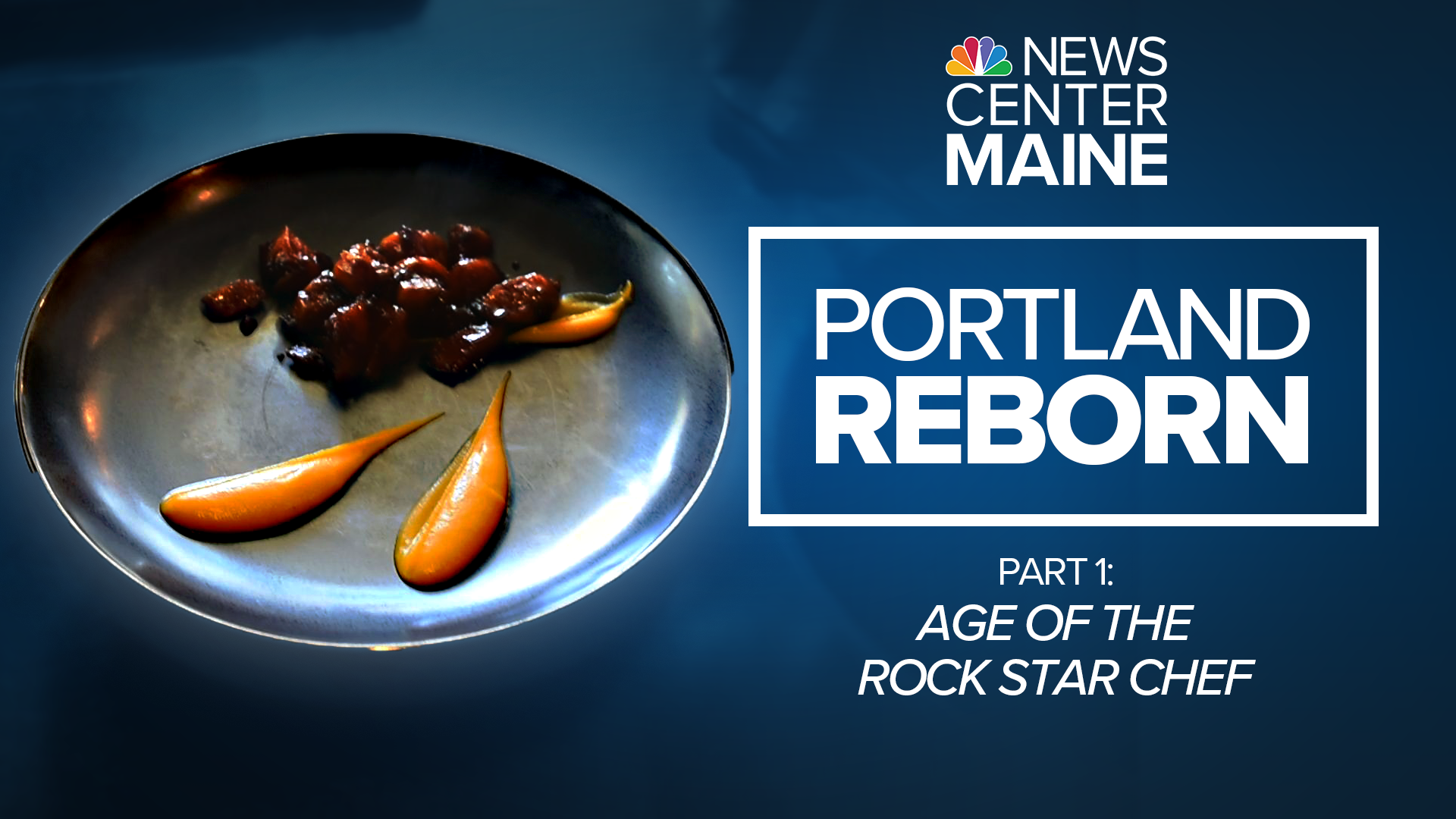PORTLAND, Maine — If you went out to eat in Portland 30 years ago, you might have grabbed a burger at the Sportsman’s Grill, or maybe you had some pasta at the Village or seafood at DiMillo’s. There were good restaurants. There just weren't a ton of them. And, to get to that restaurant you might have walked by a whole slew of vacant store fronts.
The local economy was struggling, but times have changed. Portland is one of the country’s top food and beer destinations. It currently is Bon Appétit magazine’s Restaurant City of the Year.
So how did this happen? It's a confluence of great chefs and brewers taking chances and making really prescient decisions. They're the new rock stars. Here's part one of Lee Nelson's look at "Portland Reborn."
It’s Friday night, and Portland is hopping. The restaurants are packed with tourists and locals. It’s a cacophony of clattering plates, clinking glasses, and happy chatter. People are winding down after the week with a drink and a great meal. Amazing smells are wafting from ovens and grills all over town. Whoever said Portland was just a summer tourism town hasn’t been here lately. It’s late March, the shoulder season, but the city rocking.
And so is Matt Ginn. He's the executive chef at Evo Kitchen and Bar in the Old Port. Thanks in large part to the Food Network, chefs are the new rock stars. Matt’s been on the show “Chopped” three times, and he's won twice. While he’s slightly embarrassed by the rock star comparison, he has to embrace it. Diners are coming from far away to see him cook and eat his food.
"You have people coming in to watch a show. To watch the choreography of the cooks moving, plating, listening to calls and the theatrics of dinner service. And you can really feel the energy," Ginn says. "They like really enjoy interacting with the cooks and watching the production of the food.”
That’s only possible because Evo has an open kitchen. It's a concept that’s relatively new in the restaurant world, but it’s been crucial to the foodie movement. It used to be the cooks didn’t want you to see what they were doing. What you didn’t know wouldn’t hurt you. Now, most of the top restaurants in Portland have open kitchens. It keeps the cooks on their toes, and it keeps the diners engaged. Ginn says there’s no room for error. And, it has to start with fresh, local ingredients.
"You cannot compare a tomato, an egg plant, or a pepper that I can get grown here locally in the summer to anything I’m going to get in California in the off-season," Ginn adds. "There’s just no comparing a tomato that’s never seen a refrigerator versus a tomato that has."
Give these cooks fresh local food and a license to create, and you just can’t go wrong.
While Evo is a relatively new entry in the Portland food renaissance, Fore Street is a powerhouse. It’s been reeling in eager customers and racking up awards for almost 25 years. A top 50 restaurant in the U.S., best chef in the Northeast, and on and on. It’s a must-stop, among many stops, when Lindsey and Albie Kassatly come to Portland.
"All the restaurants are spectacular," Albie says, "and it’s always a challenge when you come up to Portland. It’s like… ‘where do you go?’”
A few hours before the rush, the chefs have their pre-dinner pow-wow. Fore Street also uses only locally sourced food, so they cook what they can get their hands on. And that means the menu changes nightly. That makes it fun for the chefs and fun for the diners. And fun is crucial. This, after all, is the age of the dining experience.
"When you watch people in the dining room just transfixed by watching what these folks are doing on the line," Chef Sam Hayward says. "What these men and women are doing with food, it gets pretty amazing to watch. I like to watch it.”
If modern chefs are rock stars, Sam Hayward is Bruce Springsteen. He’s been the creative force behind Fore Street since it opened. Sam believes the Portland boom is due in large part to the fact that food fished and farmed in Maine just tastes better, fresher. Yes, he unapologetically believes that. He remembers the day 40 years ago that shaped his future.
"It was the summer of 1981 when my longtime farmer who still supplies us, Frank Gross, showed up at the back door of my Brunswick restaurant with this astonishing basket of vegetables, herbs and salads right out of his garden," Hayward says. "I’d never seen anything quite like it. And that was the epiphany.”
In Portland, you live and die by your ingredients, so it only makes sense to forge relationships with the fishermen and the farmers. The farmers are well aware of this, and they’re adapting their business models accordingly.

